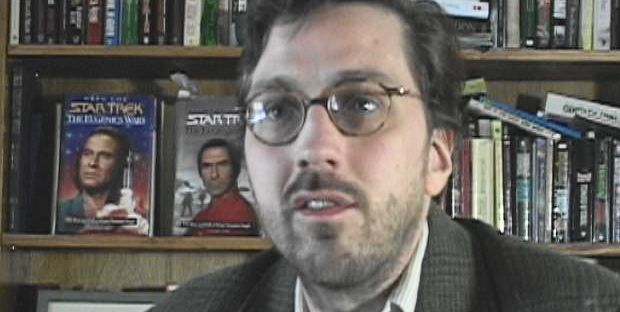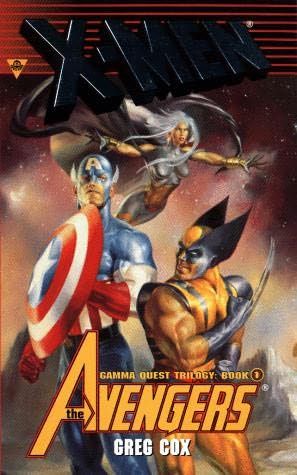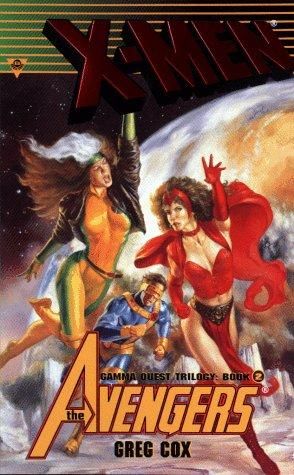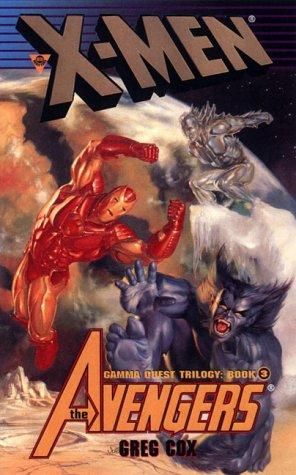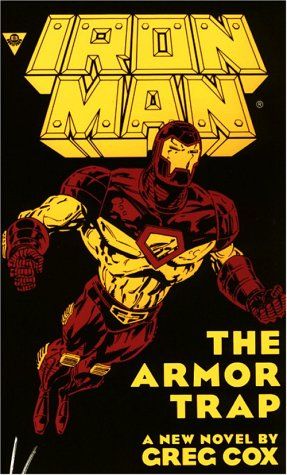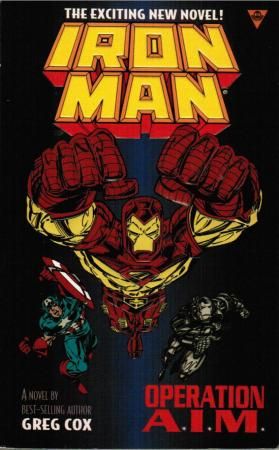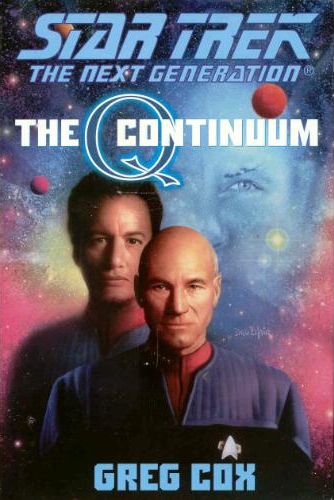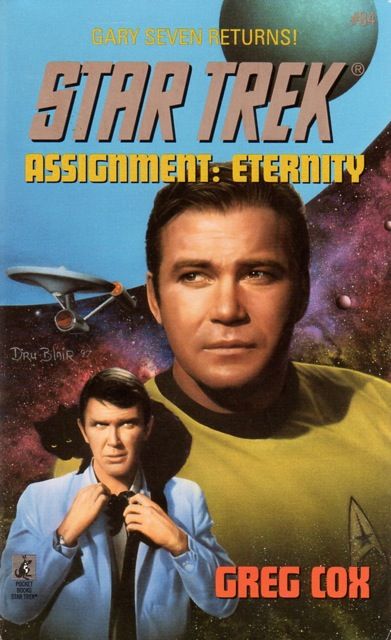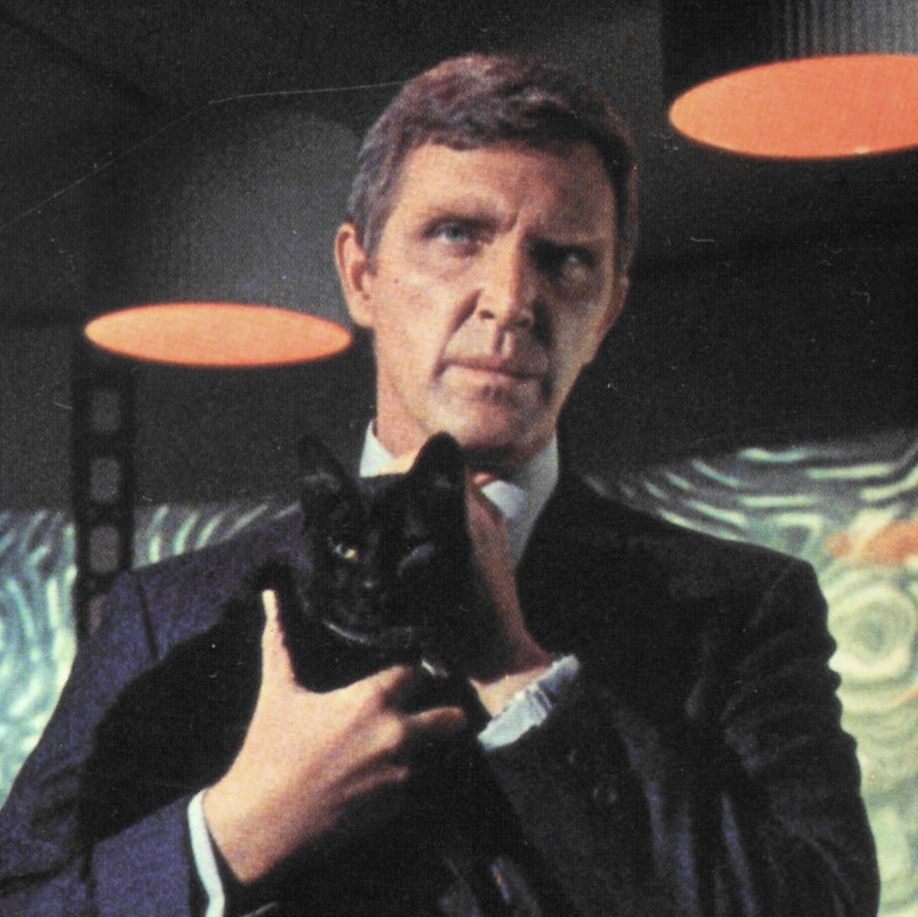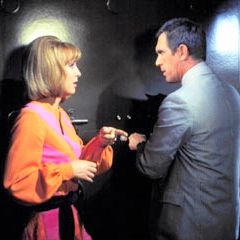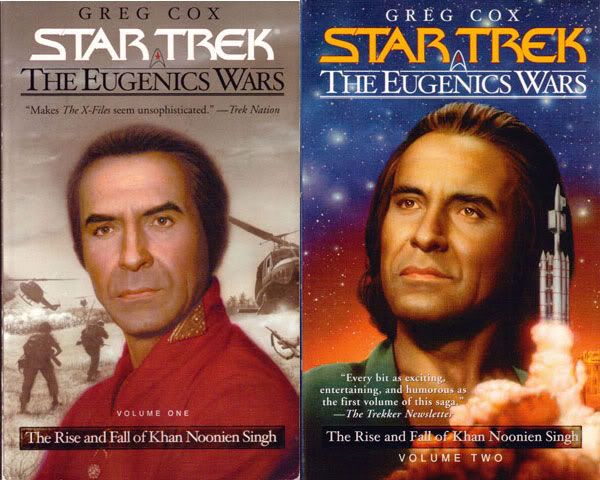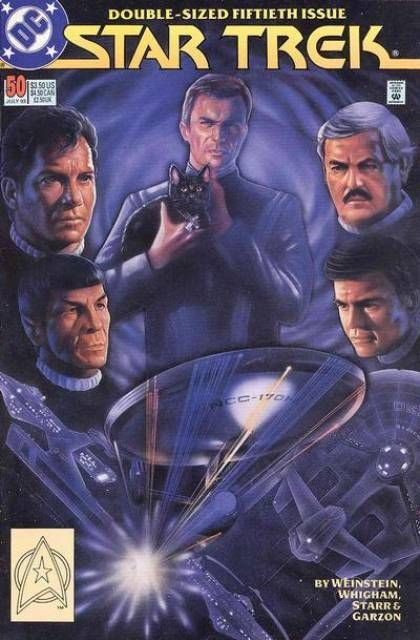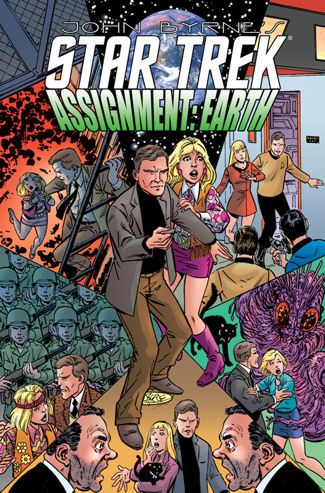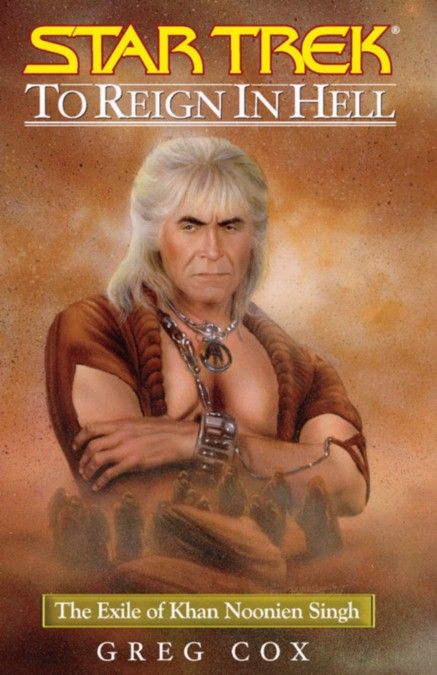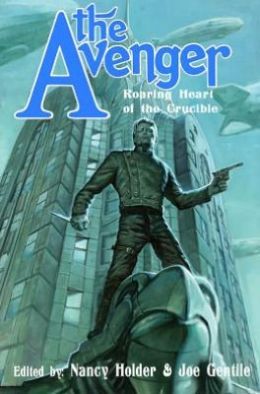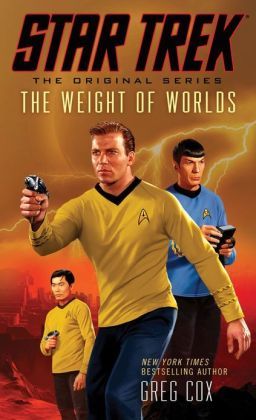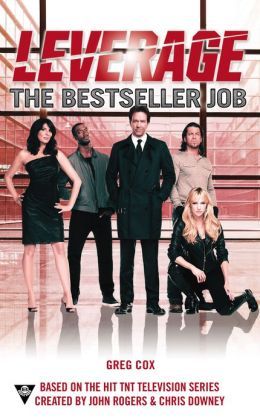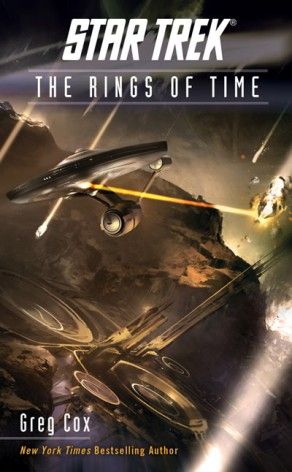When Titan Books asked me if I wanted to talk to Greg Cox about his MAN OF STEEL novelization, I lunged at it.
Not so much because of the book itself-- although it's a fine book, and Mr. Cox does a really nice job of smoothing the edges off a story that I had real problems with in the movie theatre. But I figured I could take a broader approach, and, quite selfishly, persuade him to talk about his various other books that I've enjoyed over the years.
And it surprised me, when I was looking up titles, how many years it's actually been. I first noticed his work way back when Byron Preiss was doing his series of Marvel prose novels back in the 1990s.
He did a trilogy teaming the Avengers and the X-Men called Gamma Quest that I liked a lot, and also a couple of Iron Man novels, The Armor Trap and Operation AIM.
But it was his Star Trek novels that really made me a fan. Both The Q Continuum, a trilogy that managed to include all the godlike superbeings any Enterprise had ever encountered up to that time, and Assignment: Eternity, featuring Gary Seven and Roberta Lincoln, were books that just blew me out of my chair.
Especially the second one. The "Assignment: Earth" episode of the original Star Trek was one of my very favorites-- not so much for the episode itself but because it had been done as a back-door pilot for a new TV series starring Gary Seven, a science-fiction super-agent interceding in various international crisis points throughout the turbulent times of the late 1960s, trying to insure a safe future for humanity. He was aided by his swinging mod secretary Roberta Lincoln and the mysterious feline alien Isis.
I loved that idea and often would wish that someone, somewhere, would follow up on it and give us more stories with Gary Seven, Roberta Lincoln, and Isis. Mr. Cox did, in spectacular fashion. Not too long after Assignment: Eternity came the brilliant Eugenics Wars volumes one and two-- telling the story of how Khan Noonien Singh was originally defeated in his bid for global conquest by Gary Seven and his crew.
I can't recommend these books strongly enough-- they are just an amazing tour de force, weaving together not only dozens of disparate threads of Star Trek lore accumulated over decades but also managing to place the "Eugenics Wars" (a bit of fake future-history originally posited on the 1960s show as taking place in the 1990s) firmly in the real 1990s that we all lived through, incorporating all sorts of real history.
But best of all for me, it was the Gary Seven story I had been wishing someone would do since I was in junior high school. There have been other Trek stories spinning out of "Assignment: Earth"-- John Byrne, Howard Weinstein, and Michael Jan Friedman did some nice work in the comics, and those are worth checking out...
...But as far as I'm concerned, Greg Cox owns those characters now. (Even if he himself doesn't think so.)
Anyway, I was delighted to get a chance to ask him about some of this stuff, and the interview is below. Enjoy.
***
In my youth, a novelization was as close as we got to home video, but today, with Netflix and DVD and blu-ray so readily available, what do you think the place of the tie-in novel is? What are you bringing to the table for readers? How much embellishing and extrapolating are you able to do with the narrative?
People have been predicting the demise of novelizations since the dawn of home video, yet they still seem to be popular with readers. I suspect that it's just that there are plenty of avid readers who like books, like their favorite movies, and want to be able to combine those passions somehow--and experience the story in a different, yet complementary way.
Plot-wise, I try to stick close to the script, but the pacing is different in books. You have room to slow down and flesh things out in more detail, add some additional exposition, and get more into the heads of the characters and experience events from their points of view. For example, I managed to get six chapters (!) out of Krypton sequences in MAN OF STEEL, which move at a much rapid pace in the movie.
This is a new, and in some ways more extreme, portrayal of Superman than we've ever seen before. You've actually written Superman's character before in your other books-- did it feel consistent to you, like it was the same guy, or did you have to adapt your own thinking about him while doing this book? What changed and what stayed the same?
This movie is definitely more serious and intense than the previous films, but it certainly felt like Superman to me. And, of course, my previous DC novelizations--INFINITE CRISIS, FINAL CRISIS, and so on--were based on pretty intense, modern-day takes on Superman as well, so I didn't have to switch gears much.
Speaking of your other books, you've also contributed quite a number of novels to the STAR TREK series, in particular the histories of Gary Seven and Khan Noonien Singh. THE EUGENICS WARS books, and also TO REIGN IN HELL were really amazing stories, particularly how you were able to weave in and out of the established mythology of Star Trek and also the real history of the 1990s.
Can you talk about your Star Trek books and how you approached them? Do you feel any sense of ownership there? You seem to have staked out Khan and Gary Seven the way Diane Duane staked out the Romulans, and now both of you have been overwritten, so to speak, by the TV and film versions. Do the film people ever come to the book people at all? It seems a shame to ignore all that work.
It's funny. One of my fellow Trek writers recently asked me if it was okay to "borrow" Gary Seven and Roberta Lincoln for one of his books. I appreciated the courtesy, but he didn't really need to do that. When you're writing media tie-ins, you can't get too proprietary about the shared worlds and their characters. I didn't invent Khan or Superman so I always assumed I was just sharing the toys. I never heard from the movie people about Khan, but I didn't expect to.
Glad you liked the Eugenics Wars books, by the way. I'm proud of those books.
Looking at your bibliography, you've done all sorts of licensed, tie-in stuff for all sorts of different properties-- STAR TREK, BUFFY, the X-Men and Avengers, the DC heroes in both comics and movies, the UNDERWORLD films... even the Moonstone pulp anthologies for the Avenger and the Green Hornet.
Did you set out to build that kind of career as a go-to guy for this kind of thing, or did it sneak up on you? Do you pitch yourself for these projects or do editors come to you?
I kind of stumbled into it, while working full-time as an editor for Tor Books, but in retrospect it seems inevitable. I grew up reading novelizations and tie-books for everything from GET SMART to DARK SHADOWS and THE PARTRIDGE FAMILY, and I used to fill up my school notebooks with handwritten stories about my favorite superheroes and monsters. So clearly I was always predisposed to write this stuff!
Can you tell us about any other books that our readers might be interested in? Any new projects you want to tell us about?
Thanks for asking! Besides MAN OF STEEL, I've recently written for that AVENGER anthology you mentioned, titled THE AVENGER: ROARING HEART OF THE CRUCIBLE.
And I have have two other new novels out: STAR TREK: THE WEIGHT OF WORLDS and LEVERAGE: THE BESTSELLER JOB.
And, of course, my novelization of THE DARK KNIGHT RISES is still in print!
***
In addition to those previously mentioned, I'll throw in a plug for Mr. Cox's OTHER relatively recent Star Trek book, The Rings of Time, as well, which is another delightful follow-up extrapolation novel to an original series episode I liked a lot, "Tomorrow Is Yesterday."
Anyway, thanks very much to Greg Cox for letting me geek out and answering my various fanboy questions, and also to Tom Green at Titan books for setting it up.
As for me, I'll see you next week.

